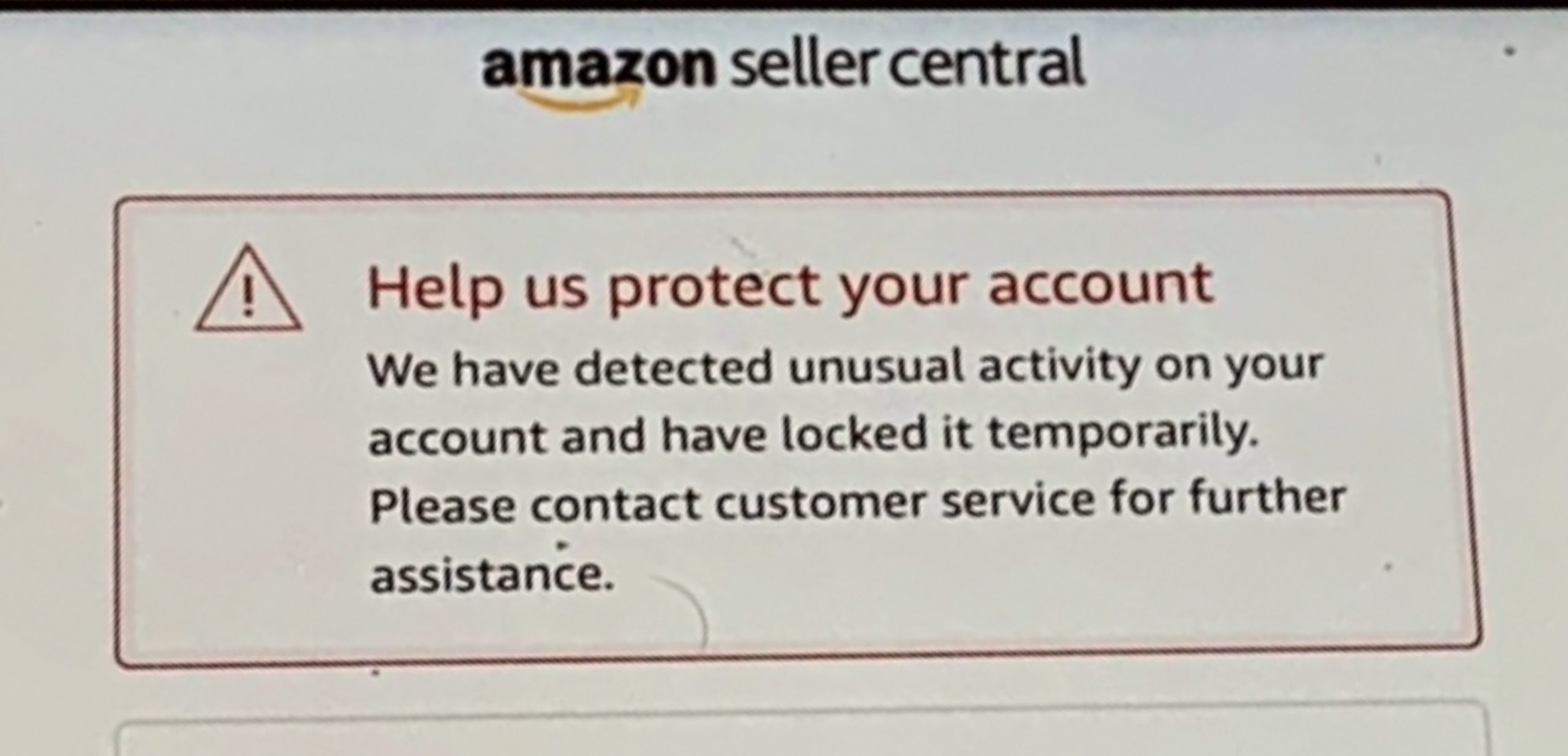Amazon settles non-compete lawsuit involving AWS executive who joined Google Cloud

[whohit]Amazon settles non-compete lawsuit involving AWS executive who joined Google Cloud[/whohit]Amazon settled a lawsuit involving a former Amazon Web Services sales executive who joined rival Google Cloud last year.
Amazon sued Philip Moyer in July after he left the company to join Google. In its lawsuit, the tech giant argued Moyer’s move to Google would “threaten the disclosure of Amazon’s highly confidential information,” in an alleged breach of his non-compete agreement.
Moyer’s new role as vice president of sales for healthcare and life sciences for Google Cloud didn’t violate the non-compete agreement with Amazon because he works with a completely different customer base, his legal team argued.
This past October, a federal judge placed major limitations on his Moyer’s role while also criticizing Amazon’s non-compete policies. Moyer was not allowed to work on any financial services projects, his area of expertise at AWS, for Google Cloud. He was also barred from contacting any AWS customers and any potential financial services customers. The conditions were to stay in place until the lawsuit was fully resolved, or until his non-compete expired in November 2020.
U.S. District Court Judge Ricardo Martinez dismissed the case on March 2, without an award of fees or costs to any party.
The parties aren’t required to disclose details of a settlement agreement.
Updates to Prime eligibility and badge criteria and Featured Offer selection on Amazon

Following a recent settlement reached between Amazon Services Europe S.A.R.l and the European Commission (which covers Amazon marketplaces in Germany, France, Spain, Netherlands, Poland, Sweden, and Belgium), Amazon will be updating the Prime eligibility and badge criteria, and Featured Offer (formerly known as the “Buy Box”) criteria in June 2023 across these stores.
This is because a regulator had expressed concerns with Amazon’s dual role as both a marketplace and a competitor to merchants selling on its platform. Amazon, for its part, says it is an enabler of small businesses in the region.
The company also agreed to display a second buy box when there is a second offer that is different from the first on price or delivery, and to let Prime sellers choose any carrier for their logistics or delivery services.
The changes apply only to the European Economic Area. In Italy, Amazon has agreed separate legal remedies with the country’s competition regulator relating to the buy box and Prime. Amazon will have until June 2023 to implement the changes, which will remain in place for five to seven years.
Here you can view a screenshot of Amazon’s e-mail sent to third party sellers on the European marketplace regarding the matter:

Here is a copy of the full wording in English:
| Updates to Prime eligibility and badge criteria and Featured Offer selection Hello, Following the agreement reached recently with the European Commission (https://www.aboutamazon.eu/news/policy/amazons-statement-on-the-commitments-agreed-with-the-european-commission) which covers Amazon stores in Germany, France, Spain, Netherlands, Poland, Sweden, and Belgium, we’ll update the Prime eligibility and badge criteria, and Featured Offer (formerly known as the “Buy Box”) criteria in June 2023 across these stores. Update on Prime eligibility and Prime badge criteria Our objective Prime eligibility and Prime badge criteria will be applied equally to offers from all sellers across the various fulfillment channels (Fulfilled by Amazon or Merchant Fulfilled) and Amazon retail. To qualify, offers will need to meet certain customer experience requirements. These requirements are derived from a Prime customer’s expectations around delivery speed and reliability, tracking, customer returns, and customer service. Additionally, sellers who wish to enroll their Merchant fulfilled offers into the Prime program may use alternative logistics providers and negotiate their terms directly, as long as delivery tracking information is made available to Amazon through our tracking systems and the Prime requirements above are met. We’ll provide detailed guidance on the new criteria in the coming months. Further details are available on the FAQ here: https://sellercentral-europe.amazon.com/help/hub/reference/GQHQGBTD7XB7EECN Update on Featured Offer selection As we strive to show our customers the best Featured Offer on the product detail page, we’ll continue to ensure that the criteria used to determine the Featured Offer are non-discriminatory and treat sellers and Amazon retail equally. Eligibility for Prime and the Prime badge won’t be a criterion when determining the Featured Offer. Prime will continue to offer free and fast delivery which are factors that customers value and therefore are relevant in determining the Featured Offer. For more details on Amazon’s agreement with European Commission, go to About Amazon (https://www.aboutamazon.eu/news/policy/amazons-statement-on-the-commitments-agreed-with-the-european-commission) and Europa.eu (https://ec.europa.eu/commission/presscorner/detail/en/ip_22_7777). The Amazon Services Europe team |
I hope you found this article helpful. If you are an Amazon Seller who needs help with any Amazon-related issues such as suspensions, listing blocks or is looking for professional assistance, please don’t hesitate to subscribe to my OnlyFans help page at: www.onlyfans.com/kikaangelic
Many Amazon sellers recently started trading stocks and crypto currencies, hoping to diversify their income, which is a very good idea with all the uncertainty which comes with the platform. For this reason, we launched a new Facebook group, Crypto Arbitrage Income (Bitcoin, Crypto, Altcoins, Blockchain, Trading) – feel free to join us and forget about the troubles of selling on Amazon for a moment!
Regarding Amazon Seller Performance, you can always participate in our Amazon Seller Performance – Friendly Advice – Worldwide group, where you will be very welcome.
In case you are an Amazon Seller who needs help with Seller Identity Verification on Amazon, please feel free to watch my most detailed video on the subject, addressing all common questions:
Europe top court rules Amazon should not sell third party knock-off Louboutin shoes

Amazon could be held responsible when third-party sellers misuse trademarks on its site.
The European Court of Justice (ECJ) made the ruling on Thursday, after courts in Belgium and Luxembourg asked for its opinion on a case raised by French shoemaker Christian Louboutin in 2019.
Louboutin argued that Amazon was breaching trademark rights by capitalising on its trademark red sole and enabling third-party sellers to offer “identical” products without the brand’s consent.
“Amazon itself makes use of the sign registered by Louboutin where the user of its site has the impression that it is Amazon which is marketing, in its name and on its behalf, shoes of the trademark,” said an ECJ press statement.
The ruling could cause more brands to challenge Amazon.
While the ECJ has made its stance clear, it does not decide the final result of the case, which is being taken back to the courts in Luxembourg and Belgium.
The verdict does not decide the Louboutin case, which will revert back to the courts in Luxembourg and Belgium. But the opinion is binding in the EU from now on.
Despite still awaiting the final outcome, Louboutin chief Alexis Mourot seems to be taking it as a win anyway.
“This is a victory for all the brands that defend their expertise,” he said in a statement.
The result will likely have repercussions for how Amazon displays products from third parties on its site, in the wake of many major brands’ ongoing concerns about counterfeit products.
I hope you found this article helpful. Many Amazon sellers recently started trading stocks and crypto currencies, hoping to diversify their income, which is a very good idea with all the uncertainty which comes with the platform. For this reason, we launched a new Facebook group, Crypto Arbitrage Income (Bitcoin, Crypto, Altcoins, Blockchain, Trading) – feel free to join us and forget about the troubles of selling on Amazon for a moment!
Regarding Amazon Seller Performance, you can always participate in our Amazon Seller Performance – Friendly Advice – Worldwide group, where you will be very welcome.
If you are an Amazon Seller who needs help with any Amazon-related issues such as suspensions, listing blocks or is looking for professional assistance, please don’t hesitate to subscribe to my new OnlyFans page at: www.onlyfans.com/kikaangelic
In case you are an Amazon Seller who needs help with Seller Identity Verification on Amazon, please feel free to watch my most detailed video on the subject, addressing all common questions:
Suspended Amazon seller gets a record breaking award after spending $200000 on legal fees

An Amazon seller in the United States spent 18 months and $200,000 in legal fees fighting for his withheld funds and seized inventory following Seller Account deactivation over authenticity issues. In the end, he received about half the $1.4 million in restitution requested. But the biggest victory was the acknowledgment that the world’s largest online retailer treated him unfairly.
Amazon suspended the seller’s account after suspecting him of selling counterfeit electronics, according to arbitration documents reviewed. Then the company seized $80,000 in his account and 50,000 products stored in its FBA warehouses.
The merchant, who did not wish to disclose his identity, asked for his money and products back, but Amazon ignored him. He couldn’t file a lawsuit because, like all other Amazon sellers, he agreed to arbitration as a condition of selling on the platform.
After reviewing contracts, interviewing witnesses and reading legal arguments, arbitrator awarded the merchant $775,000 in November. He ruled that Amazon had reason to suspect the merchant and was within its rights to suspend his account. But he said the company went too far by ignoring the seller and withholding his products, including many that weren’t suspected of being counterfeit at all.
“Given the vast resources of Amazon,” he wrote, “I would hope that in the future it will devote the resources necessary to treat all of its sellers with respect and some semblance of due process.”
The case provides a rare look inside an arbitration process that lawmakers and regulators say favors Amazon by discouraging sellers who lack the money, time and energy to take on the company.
A report issued last year by the House Judiciary Committee investigating the power of big technology companies revealed that between 2014 and 2019 only 163 merchants—out of the millions who sell on Amazon—had initiated arbitration proceedings against the company. A bill that would end forced arbitration has been discussed in the Senate since 2019, and its advocates hope testimony from Amazon merchants will give it fresh momentum.
The original intent of the 1926 Federal Arbitration Act was to provide a cheaper, faster alternative to settling business disputes than clogging up public courts. In the decades since, U.S. Supreme Court rulings have allowed arbitration to spread further into day-to-day transactions.
Before consumers rent a car or get cellular service, they’re often asked to sign contracts in which they surrender the right to sue and agree to resolve any dispute through arbitration. Some businesses require new workers to agree not to sue as a condition of employment, practices that can let serial sexual harassers remain on the payroll while their victims take confidential settlements and leave.
It looks like lawmakers are finally waking up to the antitrust implications of big companies using arbitration to gain an unfair advantage over smaller ones. “Arbitration functions as a way for Amazon to keep disputes within its control, with the scales tipped heavily in its favor,” the House Judiciary Committee said in its report. “As such, Amazon can withhold payments from sellers, suspend their accounts without cause, and engage in other abusive behavior without facing any legal consequences.”
Amazon has no incentive to change its practices even though they often don’t pass muster with lawyers and retired judges who sideline as arbiters mediating disputes. When merchants prevail, the arbiter’s decision sets no legal precedent, so Amazon can do the same thing over and over, knowing most merchants won’t bother mounting a challenge.
“It’s very expensive and time-consuming, and most small businesses don’t have the money or the time,” says Mario Simonyan, a Burbank, California, attorney. He says most clients decide against launching arbitration cases against Amazon because they typically cost $80,000 in legal fees.
One potential solution is to pass the Forced Arbitration Injustice Repeal Act, which would create a way for Amazon sellers to pursue class-action lawsuits against the company. Jacob Weiss, a home-goods merchant who supports the legislation, testified before the House committee in February. He told lawmakers that, despite spending $50,000 on an arbitration case against Amazon, he failed to recover his losses. Weiss said a second case has dragged on for nine months without resolution.
The anonymous merchant who won his case isn’t waiting for a new law. He paid off debts with the arbitration award and hopes to start a new business “as far away from Amazon as I can get.” His suggestion: “Make the final rulings public so other arbiters can consider them and Amazon won’t lose the argument today and make the same argument with a different arbiter tomorrow and win.”
➡️ If you are an Amazon Seller who needs help with any Amazon-related issues such as suspensions, listing blocks or is looking for professional assistance, please don’t hesitate to subscribe to my new OnlyFans page at: www.onlyfans.com/kikaangelic
-

 All Blogs & Seller News2 years ago
All Blogs & Seller News2 years agoYou would never think this could get you suspended! Amazon continues its wave of Buyer Account closures, learn what is new!
-

 Amazon Seller News3 years ago
Amazon Seller News3 years agoMeltable inventory restrictions start April 15, 2021
-

 All Blogs & Seller News2 years ago
All Blogs & Seller News2 years agoWatch out! Amazon is mercilessly cracking down on dropshipping!
-

 All Blogs & Seller News2 years ago
All Blogs & Seller News2 years agoHow to submit WEEE registration numbers on Amazon and what does it mean?
-

 All Blogs & Seller News2 years ago
All Blogs & Seller News2 years agoWhy isn’t Amazon doing anything to help third party sellers affected by the situation in Ukraine?
-

 Amazon Seller News2 years ago
Amazon Seller News2 years agoWhat is the difference between FNSKU and SKU?
-

 Amazon Seller News3 years ago
Amazon Seller News3 years agoWhat to do when your Amazon Seller Account gets placed on a hold?
-

 Amazon Seller News3 years ago
Amazon Seller News3 years agoFind out if any of your Amazon listings include prohibited keywords














You must be logged in to post a comment Login